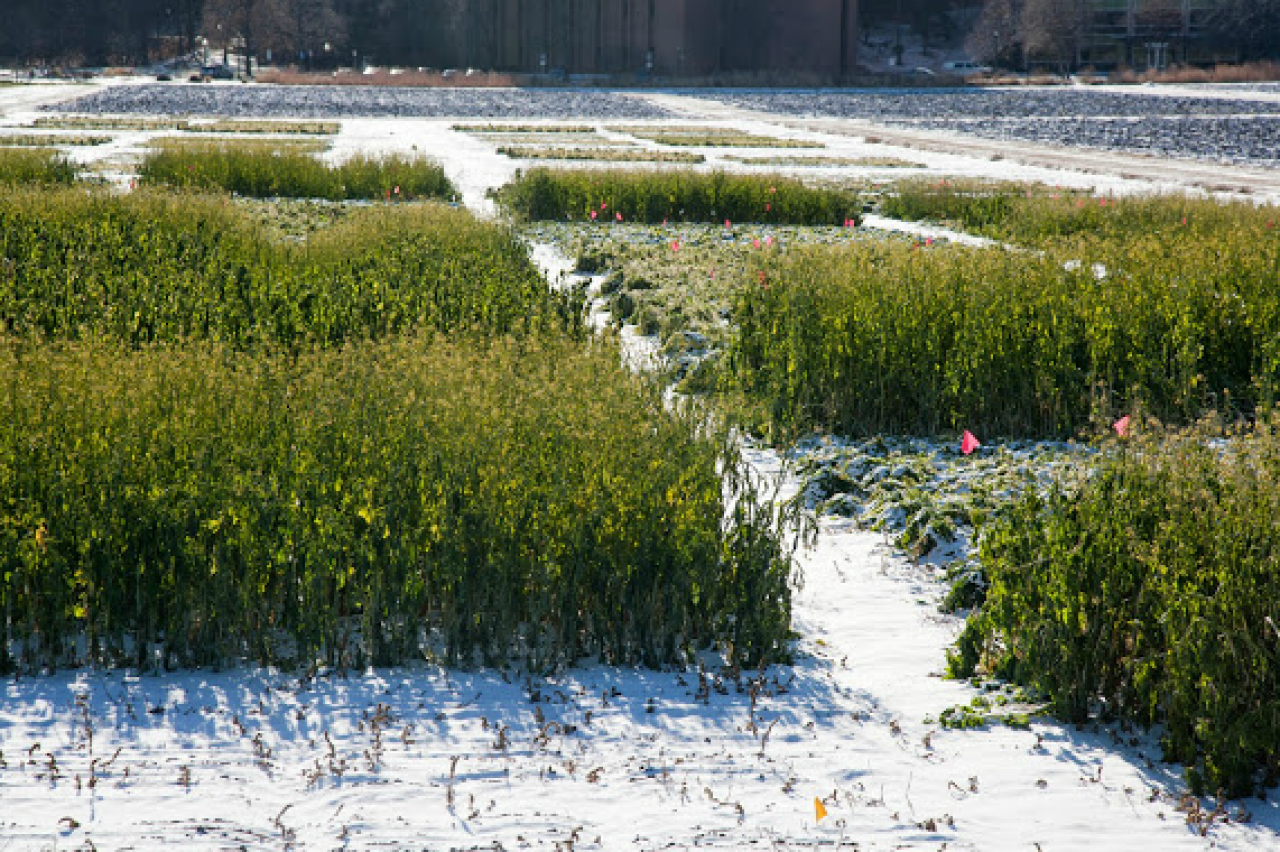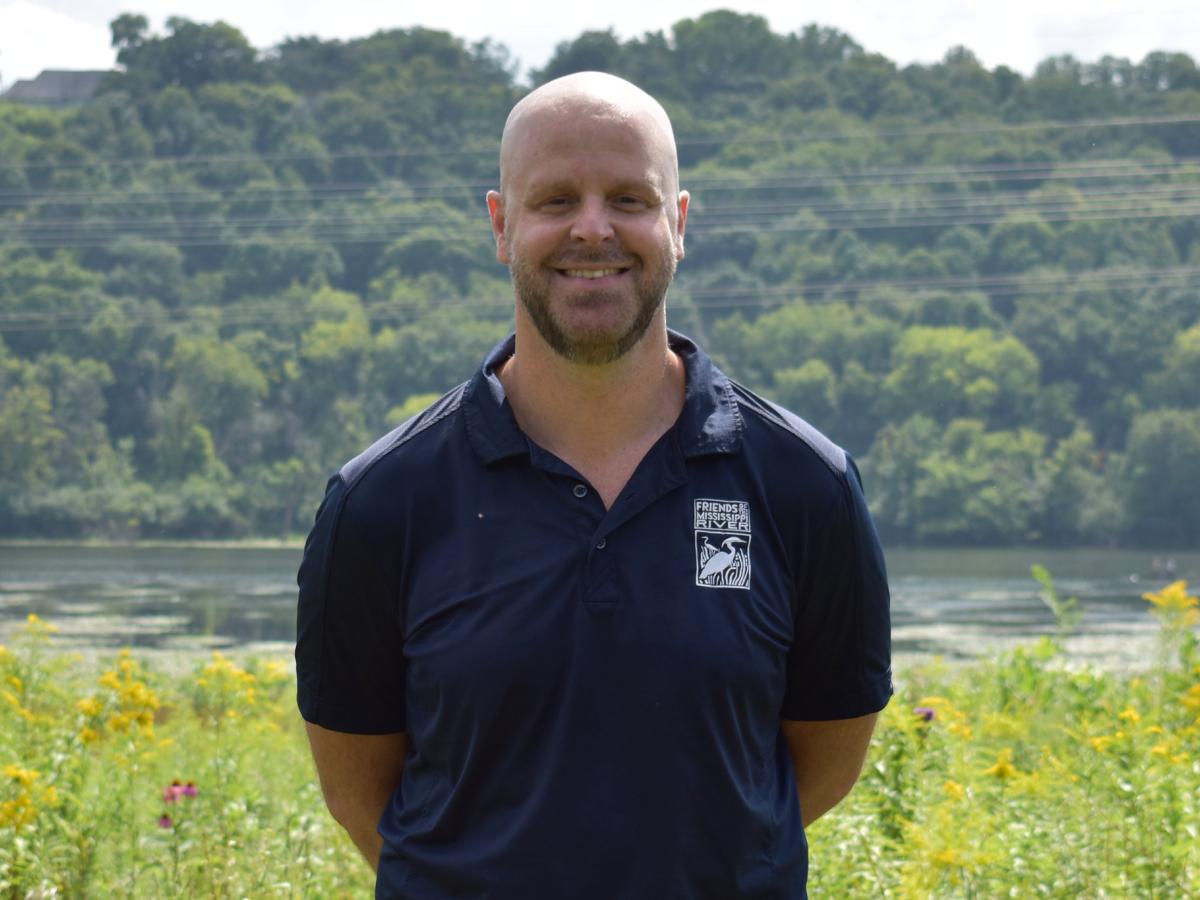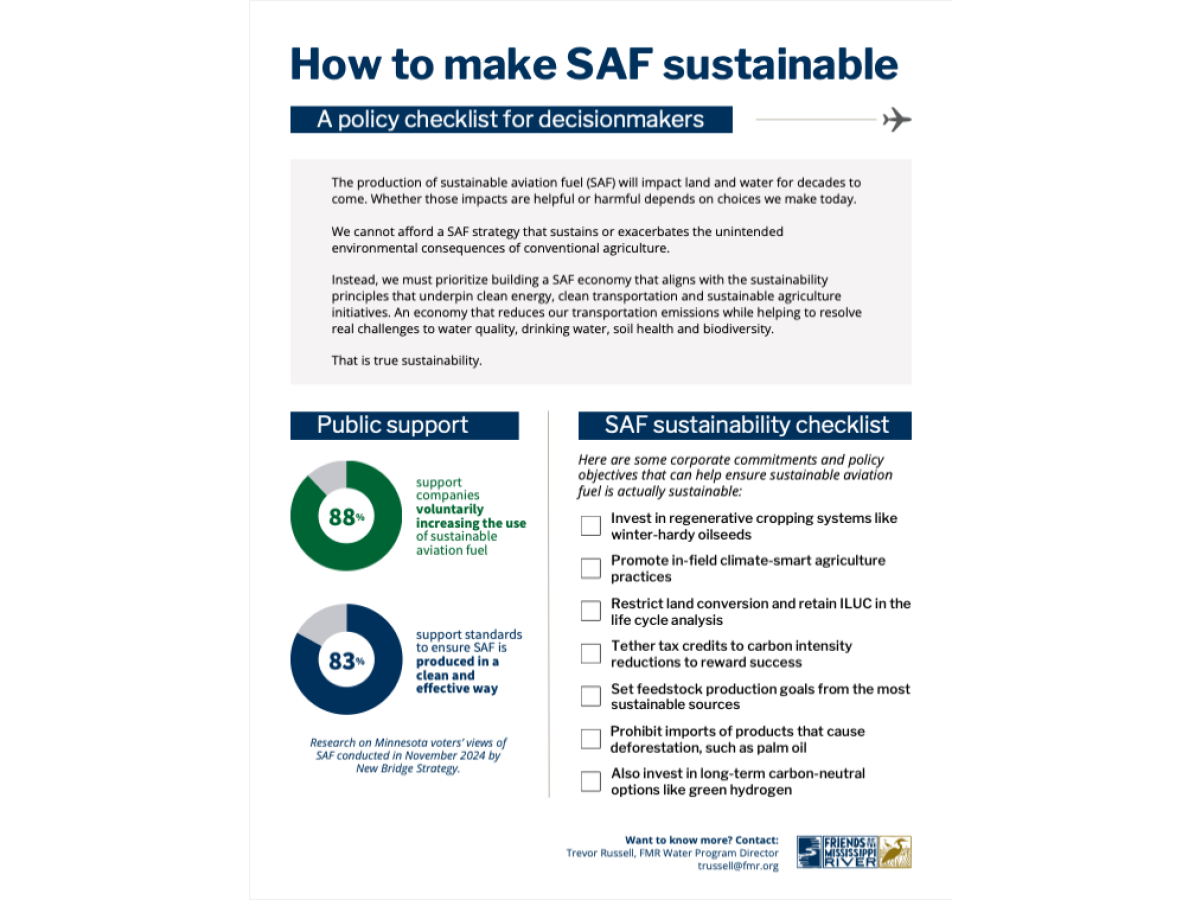The price of Sustainable Aviation Fuel (SAF) in 2025
The choices we make today for SAF will impact the health of our waters for years to come. (Photo by Ken Lund)
Explore the current price of SAF and discover an innovative strategy to keep costs down, grow SAF production, and win public support.
The cost of sustainable aviation fuel (SAF) is two to ten times more than fossil jet fuel, depending on the feedstock and conversion technology used to produce it.
In the U.S., aviation accounts for over 200 million metric tons of carbon dioxide emissions, and those emissions are likely to double by 2050 in a business-as-usual scenario.
To meaningfully decarbonize the aviation sector, Sustainable Aviation Fuel (SAF) is the only viable near-term option, but the profit margins of airlines prevent them from purchasing SAF at scale.
Keep reading to learn about an innovative strategy to both scale U.S. SAF production and build public support by strengthening rural economies while addressing both climate and water quality challenges.
What are winter-hardy oilseeds?
Winter oilseeds are crops that produce seeds with a high oil content and can survive harsh winters. Most row crop systems, such as soybeans or corn, only have living plants in the ground for a few months during the summer. This leaves the ground unprotected for the rest of the year, contributing to soil erosion and nitrate loss, which can leach into drinking water, while also leaving farmers without a revenue stream.
In colder-climate states such as Minnesota, winter hardy oilseeds like camelina and pennycress can provide living cover between summer crops.
A 2023 Continuous Living Cover (CLC) report captures it best: winter oilseeds can protect soil, help prevent water pollution, and could offer farmers a new cash crop and income stream as a SAF feedstock.
By supporting farmers and rural economies, protecting water, and promoting cleaner air, SAF from winter oilseeds can deliver the broad public support that helps airlines win customer backing.

Crops that grow in winter can be integrated into corn, soy and other conventional crops.
Momentum is building for winter-hardy oilseeds
Winter camelina has already been used in flights, including a flight departing from Minneapolis–St. Paul (MSP) Airport. In Minnesota, many 2023–2024 pilot growers choose to renew and expand winter camelina acreage in 2024–2025.
It’s not just niche voices calling for more investment. According to the DOE’s recent Pathways to Commercial Liftoff: Sustainable Aviation Fuel report, the U.S. must “meaningfully scale up and diversify its feedstock production if it is to expand SAF production and maintain American competitiveness.”
In their report, the DOE specifically cites oilseed crops, including domesticated pennycress, carinata, and camelina, as having the potential to “generate up to 1.35 billion gallons of SAF and increase total U.S. oilseed feedstock by 38%.” The scalable economic and environmental impact of feedstocks such as winter camelina and pennycress — which can be grown on the same farms as corn and soy and processed via the HEFA pathway — is what gives them such broad appeal.
Compared to soybeans or corn, winter oilseeds have ultra-low carbon intensity scores, up to 70% lower than conventional jet fuel. They help with soil health, create habitats, and reduce erosion and nutrient loss. Most importantly, these crops help farmers make money and can scale. Millions of acres could fuel our planes and protect our waters.
Depending on the feedstock, SAF can actually lead to more land conversion, increased fertilizer runoff, and worsen water pollution.
Learn more about whether your SAF is truly sustainable.

Did you attend the SAF Conference in Minneapolis, held September 22–24?
In the breakout session "Balancing Land, Climate, and Biodiversity in SAF Feedstock Development," FMR Water Program Director Trevor Russell discussed SAF Strategy for Broader Biodiversity Outcomes.
Be sure to download our checklist above. It includes some corporate commitments and policy objectives that can help ensure sustainable aviation fuel is truly sustainable.
